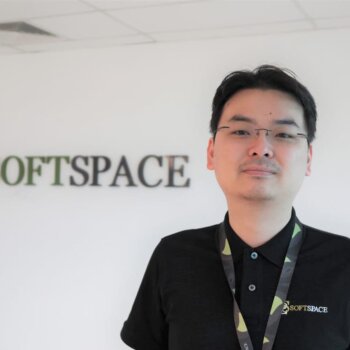Maresa Ng is a much coveted Action Coach and the founder of SME Talent, a company that specializes in assisting SMEs in human capital management. Maresa’s story began when she was embedded deep within the corporate world, as an investment banker. She decided to make a change to a career and become a business coach, when she discovered her own passions in business development. After many years working closely with many enterprises as a coach, Maresa soon discovered a major shortfall faced by a lot of existing SMEs in Malaysia. For Maresa, this was in the area of human capital, and from this revelation, Maresa launched and started her own company, becoming the first and currently, the only company in Malaysia within this field of specialty.
The Asian Entrepreneur is priveleged to hear from Maresa Ng today on business coaching and her startup experience with SMETalent.
Could you tell us abit about Action Coach and what business coaching is about?
Action Coach is a business coaching company. In regards to business coaching, we focus very much on working closely with businesses, business owners and entrepreneurs. We walk along side with them and hold the hands of these individuals, in assisting them in growing and developing their business. We work on the premise that when one works with a business coach, the business coach will not come into your business and claim that he knows everything about your business. In fact, we do coach many different types of businesses ranging from florists to manufacturers and what you tend to get is that many people will often ask: ‘Maresa, why don’t you coach a particular niche or industry of business’ and the reason why not, is the premise we work on is not one where we come across to any business owner and claim that we know more about their business than they do. It’s much more different than that.
For example, a florist may be especially good at arranging flowers and we do not contest that. However, she may or may not have the necessary business knowledge to grow and develop her business. So to us, many business owners are technicians, they may be very good at what they do but they may not have the necessary business knowledge and skills to grow and develop their business overall, so as business coaches, we come in and partner with these businesses owners and help them with this regard. The truth is there are many approaches to business and many businesses may run their business differently and some ways may be more efficient than others.
So with these different types of businesses, what sort of specific help could you offer as a business coach?
We can potentially help any kind of businesses because businesses do have the same fundamentals at its core. Some of this include, for example, how would you build the team, how you would build your work system. In my opinion, the approach to business is the same generally but the application is and has to be different and thats why we have been able to help businesses achieve the results all across the industries. A lot of people don’t quite understand; they think a business coach is a business consultant. There is always a misconception that if you are a business coach, you are a consultant, but I would say its very different because as a consultant, you would come in and provide a solution for a very specific problem but a business coach wouldn’t do that because in a lot of ways a business coach grows with the business and addresses aspects that go way beyond the specific scope of business consultancy.
I think there are really 3 main functions of a business coach. Essentially, in the first function, we examine the level of the business owner and consider whether they need to learn about business. And what I mean by this is that sometimes, we do come in and teach owners how to operate a business and grow their business. This is especially the case for those who lack the experience or the know how. So we end up teaching them the fundamentals, which include important elements, for example, about sales, about the marketing.
The second function, is those who have been in the business for awhile but they don’t see the forest for the trees anymore, in this capacity, we strive to reduce the blind spots in their business. Sometimes the longer you have been in a business, the harder it is to see anymore. So providing a new perspective is an important function that we provide that should never be overlooked.
The third function is that we hold business owners accountable. If you would look at a publicly listed company, these conglomerates in almost all cases are accountable to public shareholders. Whereas, if you look at a small business, nobody holds them accountable anymore. So they get a coach to come in to hold them accountable to the goals and milestones they say they want to achieve. The thing is when a coach comes aboard you would most likely be really serious about taking your business to the next level. I think, a good analogy is foothball. In football, a coach does not play the game, they watch you but they hold you accountable for your performance. Essentially is this what we do in this regard. As such, entirely, it is quite different from business consulting.
And why did you get into business coaching?
I got into coaching after spending a number of years in a bank. In my past life, I was an investment banker. I have to say, it was a very good career, a very rewarding career. When I was in the corporate sector, I dealt with many corporates, large corporates but I’ve never felt the passion. Simply being, because when we raised the large amount of funds, there really wasn’t any sense of fulfillment or achievement for me in helping these companies. In my early years, we would actually extend funds, anywhere from 1 to 5 million ringgit, for small companies and I’ve always been intrigued in how the funding works for these companies. And over time as I got close to my clients, I began to see there were a lot of fundamental things that they were not doing but I was not in a position as a banker to go in and advise them.
In the last year of my banking stint, there were a lot of different signs that were coming to me. I’m not usually one to read signs, but in the last year, I was approached by 3 different friends to help them start their businesses. It was a fitness company, an advertising company and restaurant at the time. At the time, I agreed to help them out, over the weekends, Saturdays and Sundays as I had a full time job then. I would spend a great deal of time with them, advising them on their business what they should do, building their projections, understanding their numbers and I thought to myself, this was really awesome and I started to hope that my Mondays to Fridays would be like my Saturday and Sundays. I started to dread to go to work on Mondays, so I started to take a look online and consider a career change.
I considered many things at the time. I contemplated joining the venture capitalism sector, I contemplated going into business consulting and I finally came across this thing called business coaching. Of course back then this was a really, really new concept in Malaysia, but in the last 5 years there have been many changes here, so that has really been great for this industry. When I came across business coaching the weirdest thing was that there were 2 more other instances when people actually rang me up asked me if I’ve heard about the company called ActionCoach. So I took the leave and resigned and I invested in the license of practicing Action Business Coaching since 2009.
So could you tell us the process towards becoming an Action Coach?
Well, I was told that is 13 step interview and I passed all of it. After the 13 step interiew, we go over to either Australia or the United States to do training. But to be honest, I think being certified is the beginning of coaching. Even when we come back from our training, the process never stops, the learning process is a continual process. The Action system makes us very good coaches but it doesn’t necessarily makes you a great coach. To be a really great coach, that would depend on your experiences, your learning, your reflections, and your review on all the areas that you can actually improve. It’s almost like a journey in many ways. I can’t even call it a job or a profession because in the journey of a coach, you can’t make an impact in other people’s lives without making an impact on your own.
Could you tell us a bit about the coaching industry in Malaysia?
This is a very interesting question because I am also very exposed to the coaching industry in other parts of the world, simply being because we do travel as coaches. What I realized is that probably in the year 2000, when Action Coach first set foot here in Malaysia, people were like: “Coaching what is that?” They were not willing to invest in a coach, they simply didn’t know what it was all about. But in the last 5 years a lot of things have changed. We’ve had a lot of different types of coaches, for example, life coaches, personal coaches, H.R. coaches, marriage coaches, finance coaches and so many different kind of coaches, but very little of the coaching was focused on coaching entrepreneurs and business owners. Over the last 5 years, the coaching industry has changed so much because there have been so much education now and in the last 10 years, so much information on the internet.
I think right now, in this country, we are still trying to educate people about the benefits and the impact of business coaching, most people know about business coaches but they don’t know the benefits and the impact. Most our business clients are starting to realize and that has been really significant for our line of work. I’ll give you an example, I have been working with a family catering business for the last 4 years. When I started with them, they were making something like 39,000 Ringgit a year, that was hardly enough to sustain anything. In 2012 last year, their annual revenue was at 6.6 million Ringgit, that sort of growth started to open the eyes of others to what business coaching does. This particular client of mine, he is targeting 10 million now. He is definitely on his way to 10 million. So the drive and the clarity really makes such a big difference, so the work we have been doing and the willingless of client to testify on our behalf, really makes a difference for us and the changing industry.
Would you then say there is a greater demand for coaching in Malaysia now than there was before?
Yeah, definitely, there is a greater demand now. It is a lot better now than what it was before. I think what also helped as well is because we started to get very active with seminars. That’s because its so hard to impact 1 person at a time and easier to impact 100s more. The education is what we focus on, in the last 5 years, there has been so many business and entrepreneurship workshop such that people have more than enough information on what to do, this has really contributed to its growth.
What do you think are the major differences between the industries in Malaysia and the West?
It’s not really that different. The difference is in the savviness of the entrepreneurs in the States and in the UK. Some of the Western entrepreneurs they tend to be clearer and more savvy in terms of their financials and their numbers. They are in general, a little better at monitoring their performance. Because of this savviness, the overall coaching approach can be a little different in the Western countries. Whereas some of the businesses are very unintentional in how they’ve got to becoming a business. For example, often it’s the case in Malaysia that people start out focused on doing a single job, and score a contract and then suddenly, they unknowingly enter and start a business. Its because of this, I think the knowledge and education does not usually grow with them or develop as they should. Malaysian business people as such, don’t usually see the gaps.
The other aspect is language. Language is also a challenge for the industry in Malaysia. If you were to coach over here in Malaysia. A lot of people speak Bahasa Malaysia, so we would need to learn how to coach in that language. So we have got to use different languages. Whereas, other parts you would have to speak Mandarin, for example in Johor. We are so multicultural in Malaysia, it can be quite difficult in relating to everyone. So this is something that coaches here would have to contemplate mastering.
In your experience, what sort of people seek coaching?
I think it is more of an individual thing when we are talking about this. When it comes to businesses, there aren’t any specific industries that need coaching more than others. As I said, we’ve dealt with many types and nature of businesses including ones built upon products, services, manufacturing and even something as creative as interior design. So it really is more individualistic than categoric.
Despite this if I really had to focus on it, I think I’ve zeroed it down to a few broad types of individuals who would want business coaching. Firstly, there are people who have already made some business mistakes in their careers so far; they have felt some sort of business pain and they want to make sure they don’t repeat the mistakes again. Usually these people are more willing to change and learn. I think it is for this reason, sometimes, we don’t really successfully take on a lot of young business people. A lot of young people fortunately, have not come to the point where they’ve made those mistakes. So If they’ve not gone through these challenges most of the time they don’t see the benefit. So we tend to take on a lot of people in their 30s, 40s, 50s. They don’t want to waste any more time. Secondly, there are people who want to run really really fast, so to speak. They want to shorten their learning curve. So these are the people who prospectively come to us and tell us they want to achieve the efficiency and results quickly without making any mistakes.
So tell us about the company you started, SME Talent, what do you guys do?
SME Talent is a really interesting business. It is a technology platform. Its vision is to assist SME enterprises to bridge the human capital gap. It came about because a lot of entrepreneurs and SMEs, are struggling with a very high level of turnover in terms of employees. I think its horrible that there is this stigma going around only the second class employees come to work for SMES because they couldn’t secure a job with a multinational corporation. The very fact that people feel that way overall is obviously why a lot of SMEs and startup companies fail in securing human capital. Unfortunately, there are a lot of SME employers that feel that way too, they feel like they can’t keep talented people and they can’t stack up against multinationals. This is a real issue, especially in Malaysia.
However, there are a host of attractive qualities that a SME possess that a multinational corporation doesn’t. We need to teach them how to package their unique benefits. At this stage, many people would wonder, why would someone work for SMEs? Well a good reason amongst many is that there is growth, employees want to be part of growth. They want to feel a part of your vision, part of building something and creating something. That is why for a lot of future generations nowadays the instinct is to work for a startup. So in this regard, a lot of SMEs really don’t know how to sell the future, the career, the direction to others. They don’t know how to manage, motivate and maintain their human capital. This is essentially how my company came about.
How has it been like working on SME Talent so far?
It has been good far and insightful so far. It has been good, but at the same time, we are facing a couple of challenges. The majority of SME employers do not place a high enough priority on employees and thus on human capital. A lot of them feel that employees are costs, they should just do their job; so many employers have a very traditional mindset when it comes to human capital. I would say this something we need to be working on and continuing to educate people about. A lot of people are more keen to learn about sales and marketing and how to make money when we run our workshops, people are just more drawn to these concerns. So we don’t really get a lot of response in terms of attendees at this stage but those that do come, they are the ones that really care and these people are great to work with.
How did you guys market SME Talent initially?
We run a lot of talks. We participate a lot at our expos. We also have a sister company which is very much already out there, it is very established with a lot of our partners, so we do piggy back on the marketing of our sister company as well, which makes it a lot easier. We do operate on a lot from referrals. People who have gotten a lot of results from our work, they do refer heaps to us, so we do operate largely from word of mouth. Otherwise, we market largely via workshops, expos and seminars.
Have you guys faced much competition in this field or would you say its a very niche market?
I think there are some people out that are doing this. There are a lot of people out there who are approaching human capital for multinationals, the bigger guys. There are more people who are doing that, and by them I mean a host of them in the arena. But I’ve not come across any in the arena who are doing it for the SMEs. Human resource and capital is very different for SMEs, there are many different reaosns. One main reason is that SME don’t have the budget to take human capital management to the extent that a multinational would. A business owner of a SME would usually have 8 to 15 staff at any point of time, so when we approach the solutions that are there, they are very reasonable and cost effective because we understand the nature of how SMEs work because we know that, we make it a very cost effective strategies. That has how been how we’ve been handling the competition. If you talk about competition, so far, after doing research, not many who are directly in this field. It is very different.
If you could start over would you do anything differently?
I think I would build our platform sooner. One of our current plans is to be building a platform that will make things easier. We have a very robust solution at the moment. If I were to do it all over again, I would make sure I build this platform abit sooner because with it we are going to be able to scale a lot better.


































